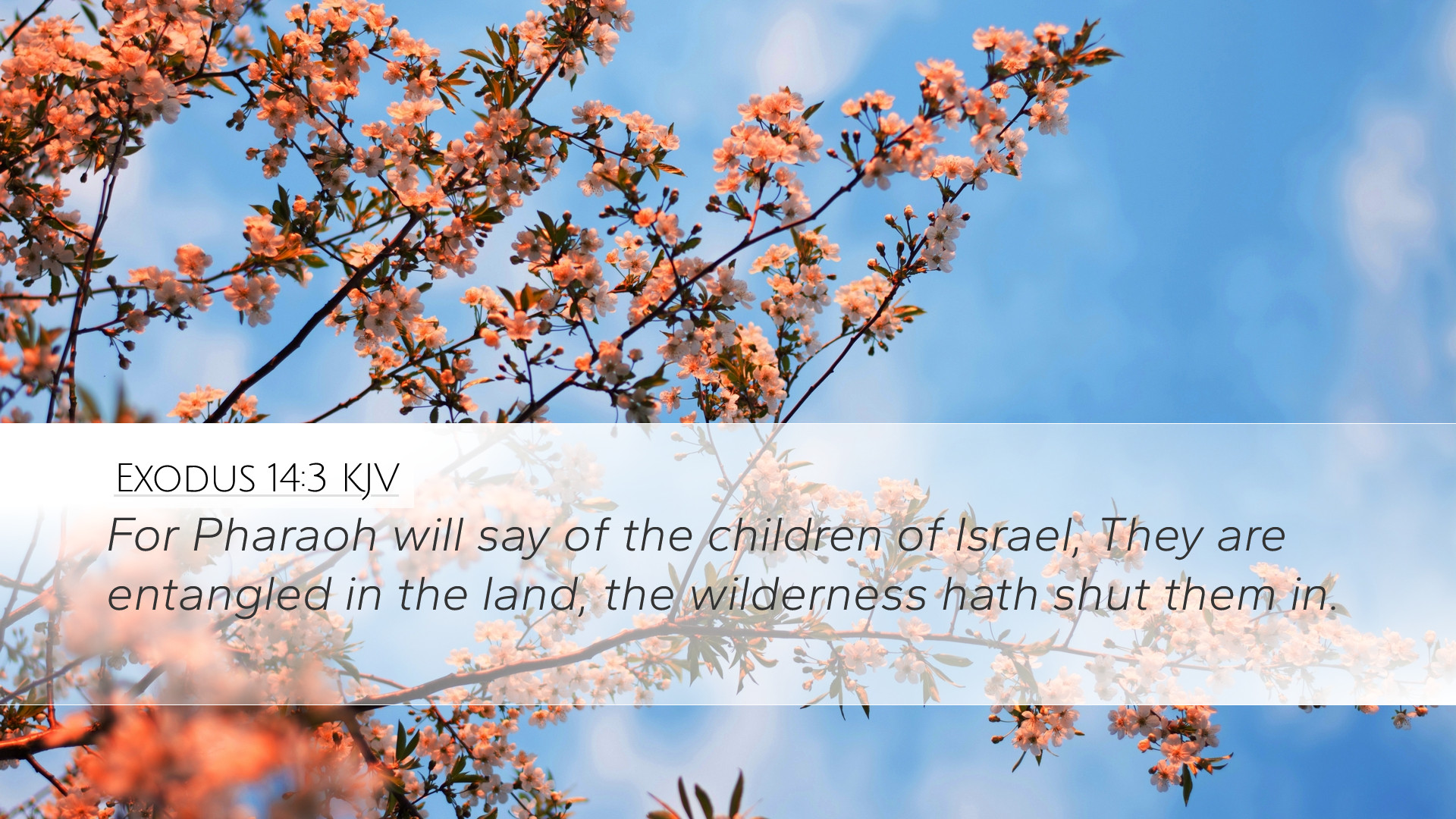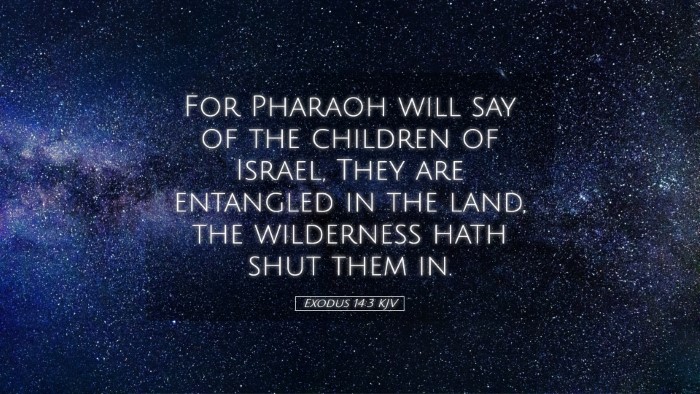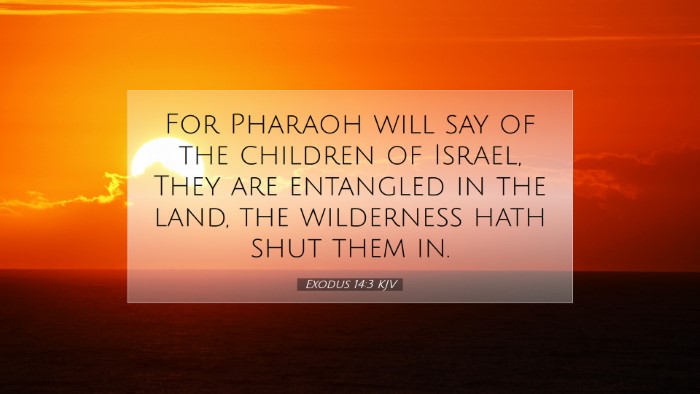Commentary on Exodus 14:3
Exodus 14:3 states, "For Pharaoh will say of the children of Israel, They are entangled in the land, the wilderness hath shut them in." This verse occurs in the context of the Israelites' departure from Egypt and their subsequent crossing of the Red Sea. Below is a synthesis of insights from various public domain commentaries that analyze the implications, theological meanings, and practical applications of this text.
Contextual Analysis
Before delving into the specific verse, it is essential to understand the broader narrative of the Exodus. The Israelites had been enslaved for centuries, and their liberation was a demonstration of God's power and faithfulness. This moment, the crossing of the Red Sea, symbolizes multiple themes including deliverance, faith, and divine guidance.
Pharaoh’s Reaction
Albert Barnes provides insight into Pharaoh's mindset, noting that God anticipated Pharaoh's response. Pharaoh, feeling his grip on the Israelites slipping, perceives their journey as disorganized, viewing them as “entangled” in the wilderness. This psychological perspective is crucial; it illustrates Pharaoh's underestimation of God's plan and his own arrogance.
Theological Reflections
Matthew Henry emphasizes the divine orchestration behind the events, indicating that God allowed the Israelites to feel seemingly trapped. This moment serves to heighten their need for divine intervention, further demonstrating that God often places His people in positions where their only option is to trust Him fully. Here, the wilderness that seemed to hem them in was, in reality, the stage for God's miraculous work.
Symbolism of the Wilderness
The wilderness in Scripture often represents trial and testing. Adam Clarke highlights that in the spiritual journey of believers, moments of wilderness signify areas where faith may be most profoundly tested. The phrase, “the wilderness hath shut them in”, can also be interpreted as a metaphor for the spiritual bondage that was broken through God's mighty acts.
Application for Believers
- Trust in God’s Plan: Just as the Israelites were caught between the Egyptian army and the Red Sea, believers today may face seemingly impossible situations. It’s a reminder that God is always at work, even when circumstances appear dire.
- Understanding Oppression: Recognizing Pharaoh’s perspective encourages believers to reflect on the struggles of oppression in various forms - whether personal, communal, or systemic. Kingdom work often seeks to liberate those who feel entangled.
- Faith Amid Trials: The wilderness experience serves to strengthen faith. The anticipation of God’s deliverance can cultivate patience and resilience, which is central to the Christian walk.
Conclusion
Exodus 14:3 is a profound verse that unveils the tension between human perception and divine reality. Pharaoh’s view of the Israelites as “entangled” serves as a caution against assessing situations through a purely human lens. The commentary from Matthew Henry, Albert Barnes, and Adam Clarke collectively demonstrates how God’s sovereignty operates in our wilderness experiences, compelling us to trust Him in what may seem insurmountable.
Final Thought
As pastors, students, and scholars meditate on this verse, let it serve as an encouraging reminder that God redeems the moments when we feel most trapped, using them as pivotal points for revealing His glory to those who steadfastly believe.


